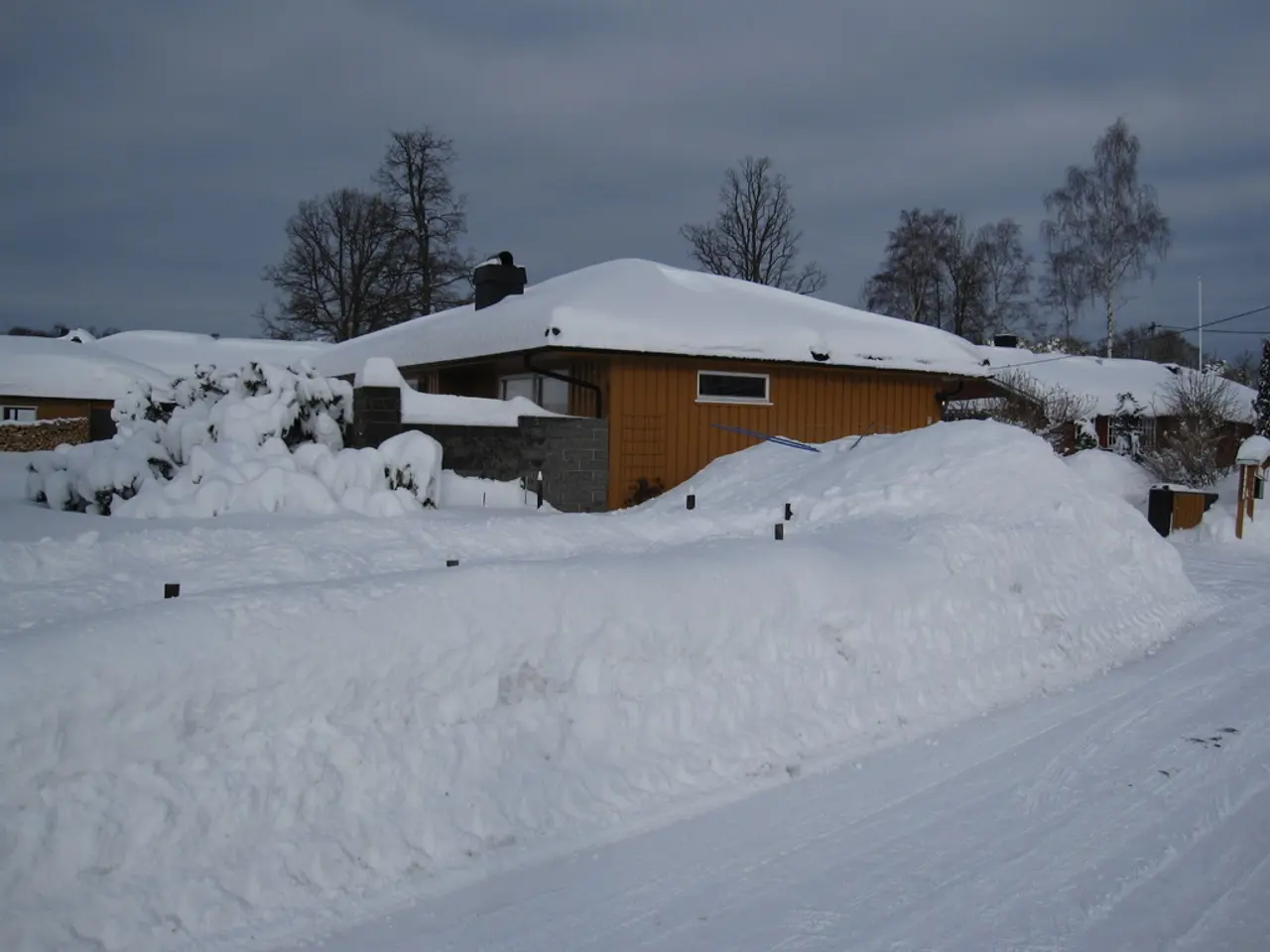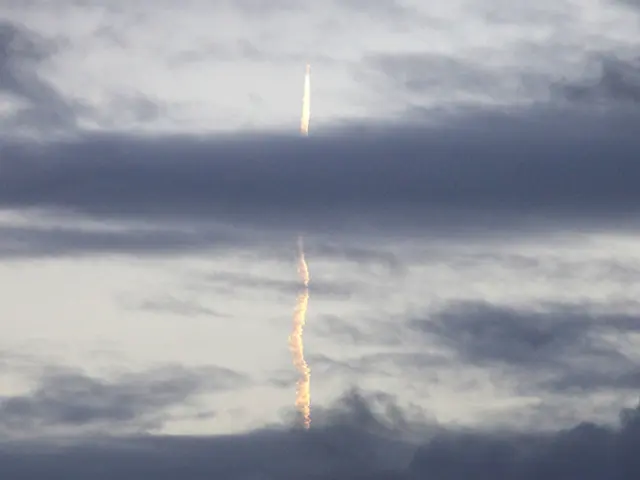Russia Braces for a Warmer, Yet Perilous Winter: Learn About the Climatological Predictions
Preparing for an Unpredictable Winter in Russia: A Guide to Staying Safe and Secure
As the winter season approaches, meteorologists predict that Russia is in for an anomalous winter, with unpredictable and potentially dangerous weather patterns. This year could see frequent shifts between rain, snow, and freezing rain, posing a significant threat to infrastructure and daily life.
The upcoming winter is expected to be colder than normal in some regions, with temperatures in December expected to rise 2°C above normal, and high humidity exacerbating the cold sensation. Early winter is predicted to start in November, with below-normal temperatures and above-average precipitation, leading to icy roads due to wet snow. In January, there will be a 3°C increase in temperature, but high humidity will make it feel colder. Frequent thaws alternating with freezes are expected, leading to road icing.
February is expected to be the peak of weather chaos, with precipitation twice the normal amount and temperatures exceeding average values by 4°C. This could result in ice accumulation, which could cause power line failures, tree falls, and roof collapses.
To prepare for this anomalous winter, it's essential to take comprehensive winter readiness measures. Here are some key preparation and safety measures:
Clothing and Heating Ensure the availability of adequate cold-weather clothing and reliable heating systems in homes and community centers to prevent hypothermia and cold injuries.
Infrastructure and Transportation Authorities should prioritize snow removal equipment readiness and road maintenance to minimize disruptions from snowfall and ice. Public transport and emergency vehicle access should be maintained.
Energy Supply Secure stable supplies of electricity and heating fuel, as demand spikes during cold periods may strain grid infrastructure.
Emergency Services Enhance capabilities for search-and-rescue, medical emergencies, and winter-related incidents. Public awareness campaigns to educate residents on winter safety and risk reduction are critical.
Wildfire Risk Monitoring While severe cold is expected, some studies indicate that anomalous winter snow influences spring wildfire activity in northeast Asia, so monitoring snow levels and their implications for subsequent fire risk is important.
Weather Monitoring and Alerts Continuous weather observation and timely dissemination of warnings and forecasts enable the public and authorities to respond proactively to extreme events.
Given ongoing climate variability, Russia should also integrate adaptive measures into broader disaster preparedness strategies to address evolving patterns in winter severity and unpredictability.
In 2010, a major ice storm in the Moscow region caused widespread power lines to snap, damaged trees, and left many settlements without electricity for extended periods. Cyclones can linger over Russian territory for up to two weeks. To prepare for the upcoming winter, specialists recommend insulating homes, especially windows and pipes, purchasing anti-slip shoe covers, making a food and water supply in case of power outages, checking the roofs of buildings, and regularly monitoring weather forecasts.
In summary, due to anticipated anomalous colder, possibly snowier conditions with some regional variability, comprehensive winter readiness focusing on cold protection, infrastructure resilience, energy security, and emergency response is essential for Russia in winter 2025. It's crucial to prepare for all possible scenarios, fortify your home, and take safety measures to protect your health and property.
- To effectively combat the unpredictable weather patterns expected during this anomalous winter in Russia, it's crucial to incorporate environmental science, specifically weather forecasting, into our preparations.
- Given the potential challenges posed by climate change, understanding the implications of weather patterns on weather-related disasters, such as ice storms, becomes vital in the context of winter-readiness.
- As we brace ourselves for an unpredictable weather season, it's essential to remain vigilant and take precautions, not only focusing on traditional winter safety measures, but also exploring the link between climate-change and environmental-science in our preparedness strategies.








